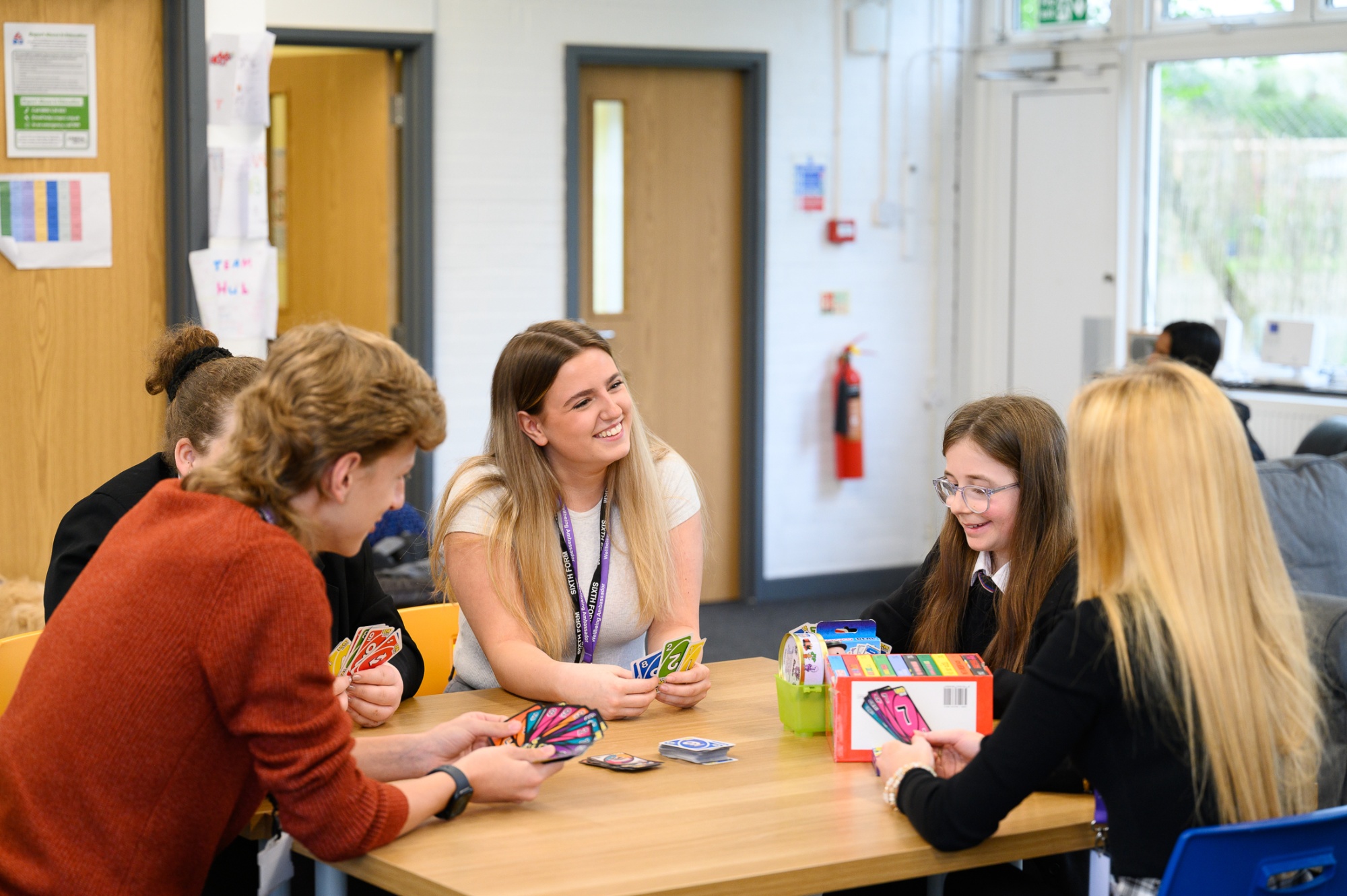University
Your Gateway to Higher Education
What is a university?
A university is a place of higher education that offers advanced courses and research opportunities. It's where students go after completing secondary school to learn more about their chosen subjects and prepare for their future careers.
Why go to university?
There are many reasons why people choose to go to university:
- Gain new knowledge and skills: Universities offer a wide range of courses, from arts and humanities to science and technology. You'll learn from experienced professors and experts in their fields.
- Expand your career opportunities: A university degree can open doors to a variety of jobs and industries. It can also help you earn a higher salary.
- Meet new people and make friends: Universities are great places to meet people from different backgrounds and cultures. You'll have the chance to make lifelong friends.
- Develop your critical thinking and problem-solving skills: University courses will challenge you to think critically and solve problems. These skills will be valuable in your future career and personal life.
Choosing the Right University
Choosing the right university is an important decision. Here are some things to consider:
- Course offerings: Does the university offer the course you want to study?
- Reputation: Is the university well-respected in its field?
- Location: Do you prefer to study in a big city or a smaller town?
- Student life: What kind of student life does the university offer?
- Cost: How much will it cost to attend university, including tuition fees, accommodation, and living expenses?
Applying to University
The application process for university varies from country to country. However, there are some general steps involved:
- Research: Research universities that offer the course you want to study.
- Meet the requirements: Make sure you meet the academic and language requirements for the university.
- Submit your application: Submit your application, including your personal statement, references, and transcripts.
- Attend interviews: If you're shortlisted, you may be invited to attend an interview.
University Life
University life is a unique experience. You'll have the opportunity to learn new things, meet new people, and develop your independence. Here are some of the things you can expect to experience:
- Lectures and tutorials: You'll attend lectures and tutorials, where you'll learn about your chosen subjects.
- Assignments and exams: You'll complete assignments and exams to assess your understanding of the course material.
- Extracurricular activities: There are many extracurricular activities you can get involved in, such as sports, clubs, and societies.
- Student accommodation: You may choose to live on campus or off-campus.
Is University Right for You?
Going to university is a big decision. It's important to weigh the pros and cons carefully and decide if it's the right path for you. If you're unsure, talk to your teachers, parents, or friends about your options.
Higher Education Access for All: Understanding the Disabled Students’ Allowance
University is a challenge for anyone – but when you have a disability, it becomes all the more tricky to traverse the pitfalls of life on campus. Often, at the forefront of these worries is finding the money to be able to fund day-to-day living expenses, the cost of accommodation, and your lifestyle.
Thankfully, more is being done to account for the financial needs of students with accessibility requirements than ever before. Increasing levels of funding are being given to students, with the chief amongst those being the Disabled Students’ Allowance (DSA).
Introduced in 1993, the DSA gives someone in higher education a small bursary to help support them financially through their time at university. But how much can they expect to receive? And who qualifies? There are lots of ifs, ands, or buts regarding the allowance. That’s why we’ve compiled this handy guide discussing all aspects of the DSA, and what they mean for you.
Read on to discover how much you might be able to claim, as well as how to, if you’re a student with a disability.
https://www.comparethemarket.com/loans/content/disabled-students-allowance-guide/
Discover the Open University (OU)
Are you ready to take control of your learning and achieve your academic and career goals? The Open University (OU) offers a unique and flexible approach to higher education, designed to fit around your life.
What makes the Open University different?
- Flexibility is Key:
- Study at your own pace, in your own time, and from anywhere in the world.
- Balance your studies with work, family, and other commitments.
- No traditional lectures or timetables – learn when it suits you.
- Open Access:
- No prior qualifications are usually required for undergraduate study.
- We believe everyone deserves the opportunity to learn.
- We support students from all backgrounds and experiences.
- High-Quality Education:
- World-renowned teaching and research.
- Expert tutors provide support and guidance throughout your studies.
- Access to a wealth of online resources and learning materials.
- Diverse Range of Courses:
- From undergraduate degrees to postgraduate qualifications and short courses
- Subjects include business, computing, psychology, law, engineering, teaching, and many more.
- Develop the skills and knowledge you need to succeed in your chosen field.
- Supportive Community:
- Connect with fellow students through online forums and tutorials.
- Access dedicated student support services for academic and personal guidance.
- Join online and in-person study groups.
Who is the Open University for?
- Working professionals looking to enhance their skills or change careers.
- Parents who want to study from home.
- Individuals seeking personal development and lifelong learning.
- Anyone who wants to gain a recognised qualification without putting their lives on hold.
Why choose the Open University?
- Career Advancement: Gain the qualifications and skills employers value.
- Personal Growth: Expand your knowledge and horizons.
- Affordable Education: Flexible payment options and student finance available.
- Globally Recognised: The OU is a respected institution with a strong reputation.







